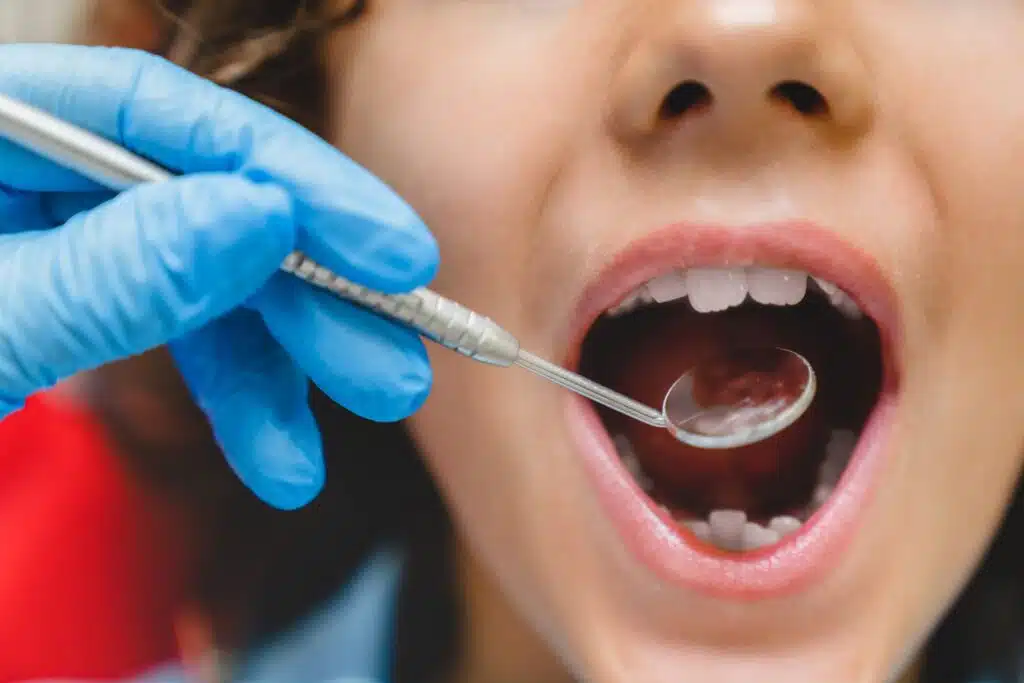At Plaza Dentistry, we know that when most people think about staying healthy, they focus on eating right, staying active, and getting regular checkups. But there’s one vital part of your health that often gets overlooked—your oral health. Oral and general health are closely connected—your mouth’s condition can significantly affect your entire body.
From heart health to diabetes, pregnancy, and mental wellness, poor oral health has been linked to a wide range of systemic health issues. In this article, we’ll explore how your oral hygiene affects your overall wellness and why caring for your teeth and gums is one of the best things you can do for your body.
Your Mouth Reflects Your Overall Health
Your mouth is the gateway to your body. It’s full of bacteria—some helpful, others harmful. When oral hygiene is neglected, harmful bacteria can grow, leading to infections in the mouth that may eventually enter the bloodstream. Once that happens, these bacteria and the inflammation they cause can travel throughout your body.
We emphasize the importance of maintaining good oral hygiene, not just for a beautiful smile, but for the sake of your entire health.
How Gum Disease Impacts Systemic Health
One of the most common oral health issues is gum disease (also called periodontal disease), which ranges from mild gum inflammation (gingivitis) to more serious infections that damage the bone and tissue supporting your teeth.
But gum disease doesn’t stop in your mouth. It’s been linked to serious medical conditions, including:
1. Heart Disease
Research shows that people with gum disease have a higher risk of developing heart disease. The inflammation caused by oral bacteria can contribute to plaque buildup in the arteries, increasing the risk of heart attacks and strokes.
2. Diabetes
There’s a two-way relationship between gum disease and diabetes. People with diabetes are more prone to infections like gum disease. At the same time, gum inflammation can make it more difficult to manage blood sugar levels.
3. Respiratory Infections
Oral bacteria can be inhaled into the lungs, especially in older adults or people with existing health conditions, increasing the risk of infections like pneumonia and bronchitis.
4. Pregnancy Complications
Pregnant women with gum disease may face a higher risk of preterm birth and low birth weight. Pregnancy hormones can make the gums more sensitive and vulnerable to plaque, which is why we recommend more frequent cleanings during pregnancy.
How Oral Health Affects Your Immune System
When your mouth is dealing with constant inflammation or infection, your immune system has to work overtime. Ongoing gum disease, abscesses, or untreated cavities can tax your body and weaken its ability to fight off other infections.
By staying on top of your oral health, you help reduce this burden and support your body’s natural defenses.
Oral Health and Mental Well-being
We also recognize the strong connection between oral health and mental health. Ongoing dental pain, missing teeth, or embarrassment about your smile can cause anxiety, low self-esteem, and depression. Patients often share how life-changing it is to regain confidence in their smile, and we’re proud to be part of that transformation.
Warning Signs That Oral Health May Be Affecting Your Body
Here are a few symptoms to watch for that could indicate your oral health is impacting your general health:
- Gums that bleed when brushing or flossing
- Persistent bad breath
- Mouth sores that don’t heal
- Loose or shifting teeth
- Jaw pain or clicking sounds
- A constant dry mouth
If you notice any of these signs, don’t wait. We’re here to help diagnose and treat the issue before it impacts your overall health.
What We Recommend for a Healthier Mouth and Body
Improving your oral health and general health doesn’t have to be complicated. Here are the simple steps we suggest our patients follow:
1. Brush Twice a Day
Use fluoride toothpaste and brush for at least two minutes, especially after meals and before bed.
2. Floss Daily
Flossing removes plaque and debris from between your teeth and beneath the gumline—areas your toothbrush can’t reach.
3. Schedule Regular Checkups
We recommend dental checkups and professional cleanings every six months, or more often if you’re at higher risk for gum disease.
4. Eat a Balanced Diet
Limit sugary snacks and drinks, and incorporate calcium, fiber, and leafy greens to support oral health.
5. Avoid Tobacco
Smoking significantly increases your risk of gum disease and oral cancer. If you need help quitting, we can point you to helpful resources.
6. Stay Hydrated
Water keeps your mouth clean and promotes healthy saliva production, which naturally defends against bacteria.
Prevention Is the Best Medicine
Preventive care is at the heart of everything we do at Plaza Dentistry. By catching potential problems early, or preventing them entirely, we help you avoid pain, health risks, and costly treatments.
Every dental visit is more than just a cleaning. It’s a chance for us to assess your overall wellness, provide personalized advice, and ensure your oral health supports your long-term health goals.
Our Final Thoughts: It’s All Connected
It’s easy to separate the mouth from the rest of the body, but in truth, they’re deeply connected. Poor oral health can lead to or worsen health problems that affect your heart, lungs, blood sugar, immune system, and mental wellness.
That’s why we’re passionate about helping our patients maintain strong, healthy smiles. With consistent care and our team by your side, you’re not just protecting your teeth—you’re investing in your total well-being.
Ready to Take the Next Step?
Let’s work together to improve both your oral health and general health wellness. Schedule an appointment with Plaza Dentistry today—we look forward to seeing you smile!


